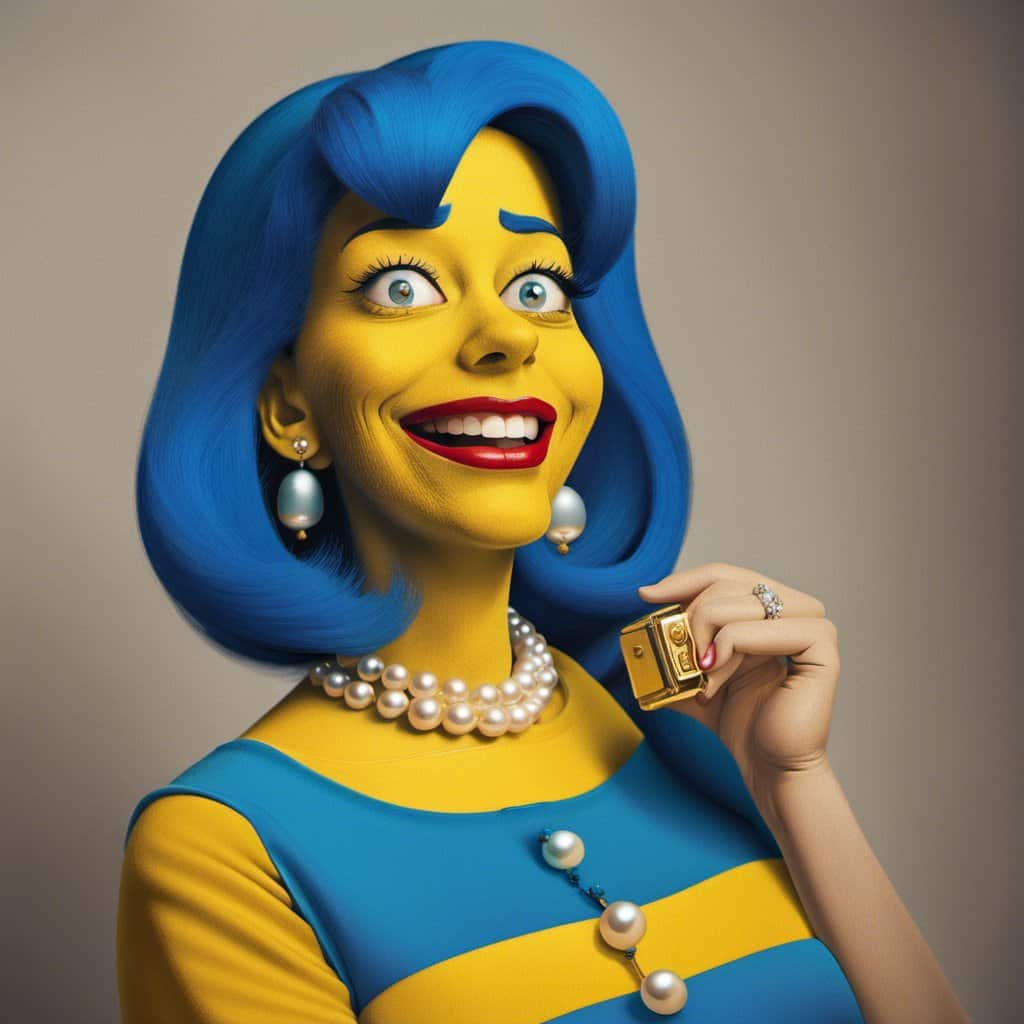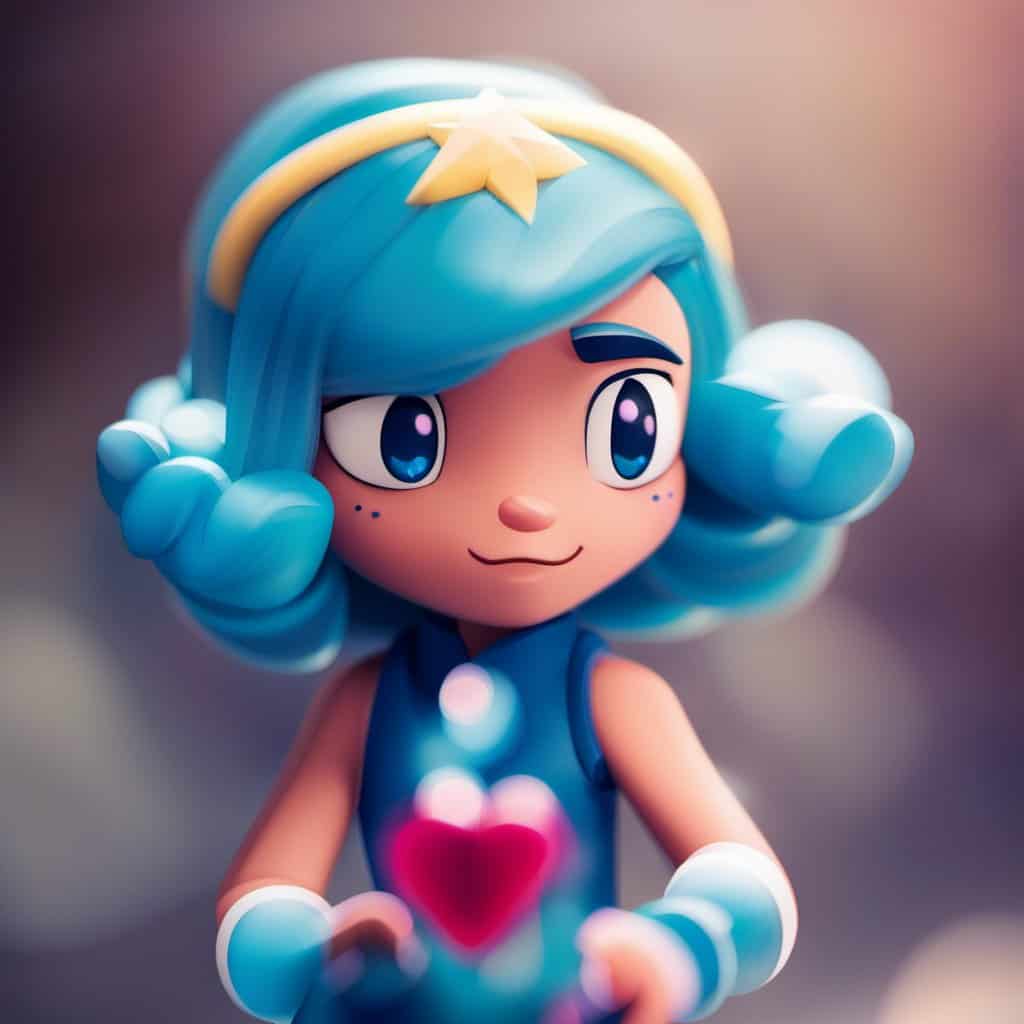TV Girl’s song “Blue Hair” has gained popularity among listeners, with many trying to decipher its meaning. The song’s lyrics are introspective and delve into themes of identity, self-discovery, and the transitions inherent in maturity. The protagonist of the song is a lady that the vocalist fancies and the narrative explores her struggles with beauty ideologies and how it affects her.
There have been many interpretations of the song’s meaning, with some suggesting that it is about suicide, drugs, or hair itself. However, a more likely interpretation is that the song is a poignant examination of the societal pressure to conform to beauty standards. The protagonist’s blue hair represents her non-conformity and her desire to be unique, but she feels like a fraud and believes that she has to cut off her blue hair to fit in.
Let’s deep dive to learn more.
Origins of Blue Hair TV Girl

TV Girl is an American indie pop band from San Diego, California, formed in 2010. The band consists of Brad Petering (vocals, guitar, keyboards), Jason Wyman (keyboard, guitar, percussion), and Wyatt Harmon (drums). The band’s name is inspired by their preference for sampling content from 1960s-era television shows in their music.
“Blue Hair” was released in 2018. The song is a part of their album “Death of a Party Girl.” The song is an introspective and subtly heart-wrenching composition that examines youthful identity, self-discovery, and the transitions inherent in maturity. The song, decorated with nostalgic instrumental tones, carries with it a deep sense of longing, loss, and regret.
The lyrics, however, are about a protagonist who had a friend who wanted to be funny and pretty, but they felt like a fraud and thought they had to cut off their blue hair to fit in. The song’s chorus features the lines
“And I tried to hold her / But it didn’t work out / I tried to hold her / But she’s too far gone now.”
The lyrics suggest that the protagonist tried to help their friend, but the friend was too far gone to be helped.
In 2021, TV Girl released a collaborative album with Jordana, a female singer, titled “Summer’s Over.” The album features a mix of indie pop and dream pop music and has received positive reviews from critics.
Symbolism of Blue Hair
Blue Hair delves into the themes of self-discovery, identity, and societal beauty standards. The protagonist of the song is a girl with blue hair who is struggling with her self-image and the perception of others. The blue hair is a symbol of her individuality and uniqueness, but as the song progresses, it becomes apparent that the girl is facing a crisis and is losing her identity as she compromises herself to fit into the societal beauty standards.
The blue hair can be seen as a metaphor for the protagonist’s true self. It represents her individuality, creativity, and uniqueness. Likewise, the song’s progression with the blue hair becoming a burden for the protagonist can be seen as a metaphor for the pressure that society puts on individuals to conform to certain norms and standards.
The blue hair can also be seen as a symbol of rebellion, a way for her to rebel against the norms and expectations of society. It is a way for her to express her individuality and reject the idea that she has to conform to certain standards. But again, as the song progresses, the protagonist realizes the cost that comes with rebellion. She becomes isolated and feels like she doesn’t belong.
Notable Blue Hair TV Girl Characters

Despite the song’s inherent message, Blue Hair is not only a symbol of self-discovery and identity in TV Girl’s music. It is also a popular feature in many TV shows and movies.
Here are some notable blue hair TV girl characters:
- Marge Simpson from The Simpsons – Marge Simpson’s blue hair is iconic and has become one of the most recognizable hairstyles in the world. The blue hair has been a staple of the show since its inception in 1989 and is a symbol of Marge’s unique personality and style.
- Lapis Lazuli from Steven Universe – Lapis Lazuli is a blue-haired gem from the animated series Steven Universe. Her hair color is a reflection of her gemstone and is a symbol of her power and strength.
- Faye Valentine from Cowboy Bebop – Faye Valentine is a bounty hunter with a mysterious past and a blue bob haircut. Her blue hair is a symbol of her independence and rebellious nature.
- Misty from Pokemon – Misty is a gym leader from the Pokemon series with bright blue hair. Her hair color is a reflection of her water-type Pokemon and is a symbol of her passion for training and battling.
- Daenerys Targaryen from Game of Thrones – Daenerys Targaryen, also known as the Mother of Dragons, has long silver-blue hair in the popular TV show Game of Thrones. Her hair color is a symbol of her royal heritage and her connection to the dragons.
Impact on Pop Culture
TV Girl’s “Blue Hair” has had a notable impact on pop culture since its release. The song’s lyrics and themes have resonated with many listeners, particularly those who have struggled with fitting in or conforming to societal standards.
One of the most significant impacts of “Blue Hair” has been its role in promoting discussions about beauty standards and individuality. The song’s protagonist, who cuts off her blue hair to fit in, is a powerful symbol of the pressure that many people feel to conform to societal norms. Thus, raising awareness about the importance of embracing one’s individuality and resisting societal pressures to conform.
In addition to its impact on discussions about beauty standards, “Blue Hair” has also had an impact on the indie pop music scene. The song’s catchy melody and clever lyrics have made it a fan favorite, and it has been covered by numerous artists and featured in various media outlets. Its enduring popularity is a testament to its powerful message and the skill of TV Girl in crafting a memorable and impactful song.
Blue Hair TV Girl in Anime
“Blue Hair” by TV Girl inspired many interpretations and analyses. Some fans connected it to anime characters with blue hair, such as Hatsune Miku and Sailor Mercury.
Hatsune Miku, a virtual pop star, is known for her signature turquoise hair. She was created by Crypton Future Media using Yamaha’s Vocaloid software. Hatsune Miku is a cultural icon in Japan and has inspired many fan works, including songs, music videos, and manga. Some fans have created their own anime series featuring Hatsune Miku and other Vocaloid characters.
Sailor Mercury, on the other hand, is a character from the Sailor Moon anime series with blue hair, known for her intelligence and analytical skills. She is one of the five Sailor Senshi who protect the Earth from evil forces. Sailor Mercury’s blue hair is often seen as a symbol of her calm and rational personality.
While there is no direct connection between “Blue Hair” by TV Girl and these anime characters, there are underlying similarities in the themes of self-discovery and identity. Like the song’s lyrics, Hatsune Miku and Sailor Mercury are both characters who have their own distinct personalities and stories.
Blue Hair TV Girl in Western Animation

In Western animation, blue hair is often used to represent a character’s unique and quirky personality. One notable example is the character of Mabel Pines from the animated television series Gravity Falls. Mabel is known for her upbeat and eccentric personality, which is reflected in her blue hair.
Similarly, the character of Star Butterfly from the animated television series Star vs. the Forces of Evil also has blue hair. Star is a magical princess from another dimension who is known for her energetic and impulsive nature. Her blue hair is a reflection of her magical abilities and her free-spirited personality.
In the animated television series Steven Universe, the character of Sapphire also has blue hair. Sapphire is a member of the Crystal Gems, a group of magical beings who protect the Earth from evil forces. Her blue hair is a reflection of her calm and collected personality, as well as her ability to see into the future.
Animators use blue hair to represent a character’s personality and traits visually and to create a memorable and unique character design. A theme that isn’t so far off from the representation of TV Girl’s Blue Hair song.
Interpretations and Criticisms
TV Girl’s “Blue Hair” is a song with many interpretations. Some have suggested that the song is about suicide or drug use, while others have focused on the theme of beauty ideologies and how they affect the protagonist of the song.
Others interpret the song as the transition from youth to maturity. The protagonist cuts off her cherished blue hair as a symbol of her growing up and leaving her immature ways behind. The protagonist laments this change, wishing that his love interest had remained the same. This interpretation is supported by the line,
“I miss the way you used to be.”
Another interpretation is that the song is about conformity and the pressure to fit in. The blue hair could represent a non-conformist or alternative lifestyle, and the protagonist’s love interest may feel pressure to conform to societal norms by cutting it off. This interpretation is supported by the line,
“You look like everybody else.”
Despite the various interpretations, some critics have criticized the song for being too vague and not providing enough context for the listener to understand the meaning fully. Others have praised the song for its introspective and poignant examination of youthful identity and self-discovery.
Conclusion
“Blue Hair” explores the themes of identity, self-discovery, and the transitions inherent in maturity. The song’s lyrics provide a poignant examination of the struggles that people go through as they try to find their place in the world.
The meaning of the song is open to interpretation, and different listeners may have different opinions on what it means. But many, including us, see it as a commentary on the pressure that society puts on individuals to conform to certain norms and expectations.
Regardless, “Blue Hair” is a thought-provoking song that raises important questions about identity, self-discovery, and the pressures that people face in their daily lives.
Frequently Asked Questions
What is the meaning of the song Louise by TV Girl?
The song “Louise” by TV Girl is about a girl who is going through a difficult time in her life. The lyrics describe her struggles with depression and anxiety, as well as her feelings of isolation and loneliness. The song is a poignant reflection on the challenges of mental health and the importance of seeking help when needed.
When did TV Girl’s Blue Hair come out?
“Blue Hair” by TV Girl was released on April 16, 2023. The song is part of the band’s album titled “The Night in Question.”
What type of music is TV Girl?
TV Girl is an American indie pop band that was formed in 2010 in Los Angeles, California. Their music is often described as a blend of indie pop, dream pop, and lo-fi.
Is Blue Hair by TV Girl about self-harm?
There has been some speculation that “Blue Hair” by TV Girl is about self-harm, but the band has not confirmed this interpretation. The lyrics of the song describe a girl who is going through a difficult time in her life and is struggling with her identity. The song is a poignant reflection on the challenges of growing up and the importance of finding one’s place in the world.
What is the meaning behind Blue Hair?
The meaning behind “Blue Hair” by TV Girl has been the subject of much debate and interpretation. Some listeners believe that the song is about the challenges of growing up and finding one’s identity, while others see it as a reflection on mental health and the struggles of depression and anxiety.
Are there any songs about blue hair besides Blue Hair by TV Girl?
There are many songs that mention blue hair, but “Blue Hair” by TV Girl is one of the most well-known. Other songs that mention blue hair include “Blue Hair Day” by The Cardigans, “Blue Hair Girl” by The Spinto Band, and “Blue Hair in a Red Room” by The Ghost of a Saber Tooth Tiger.
